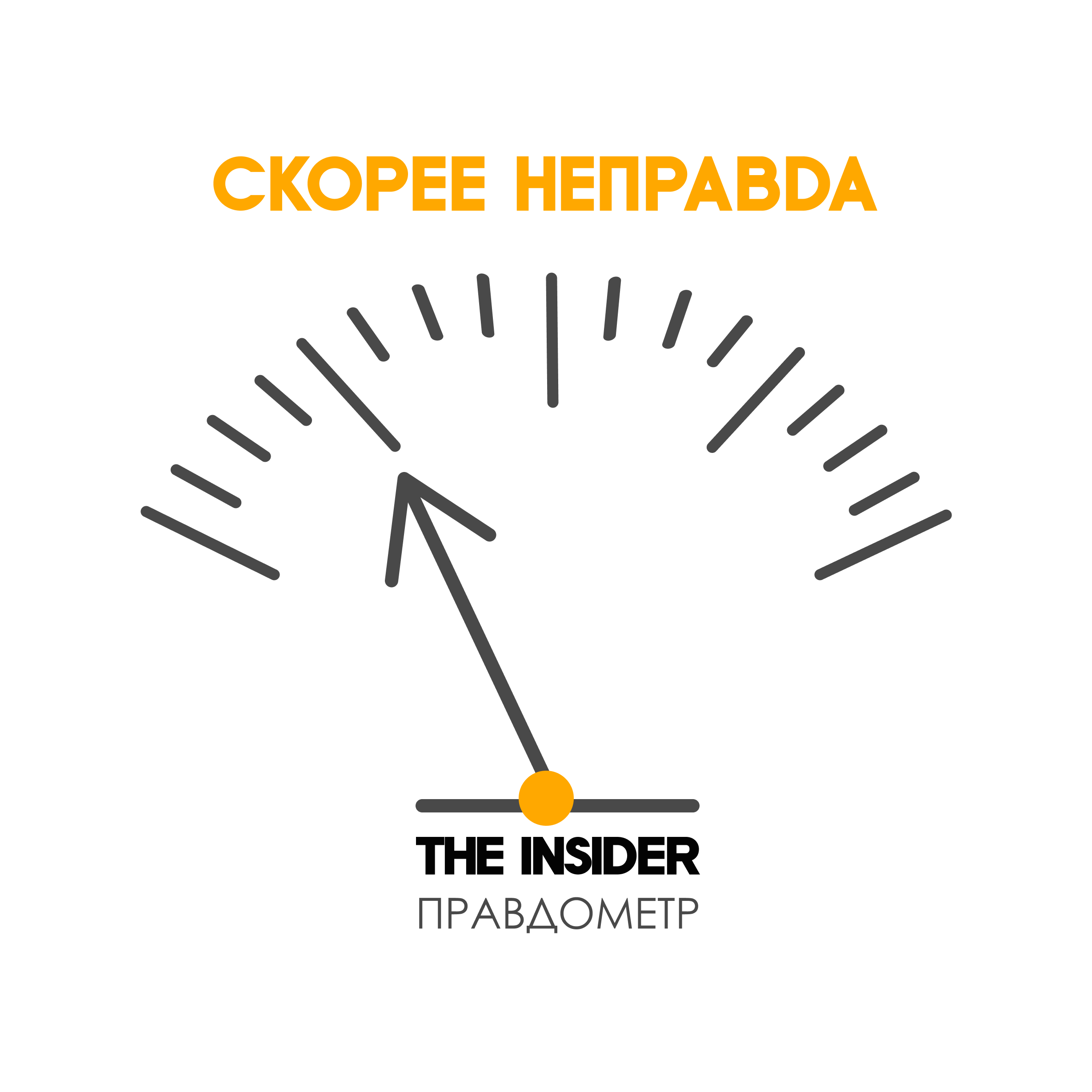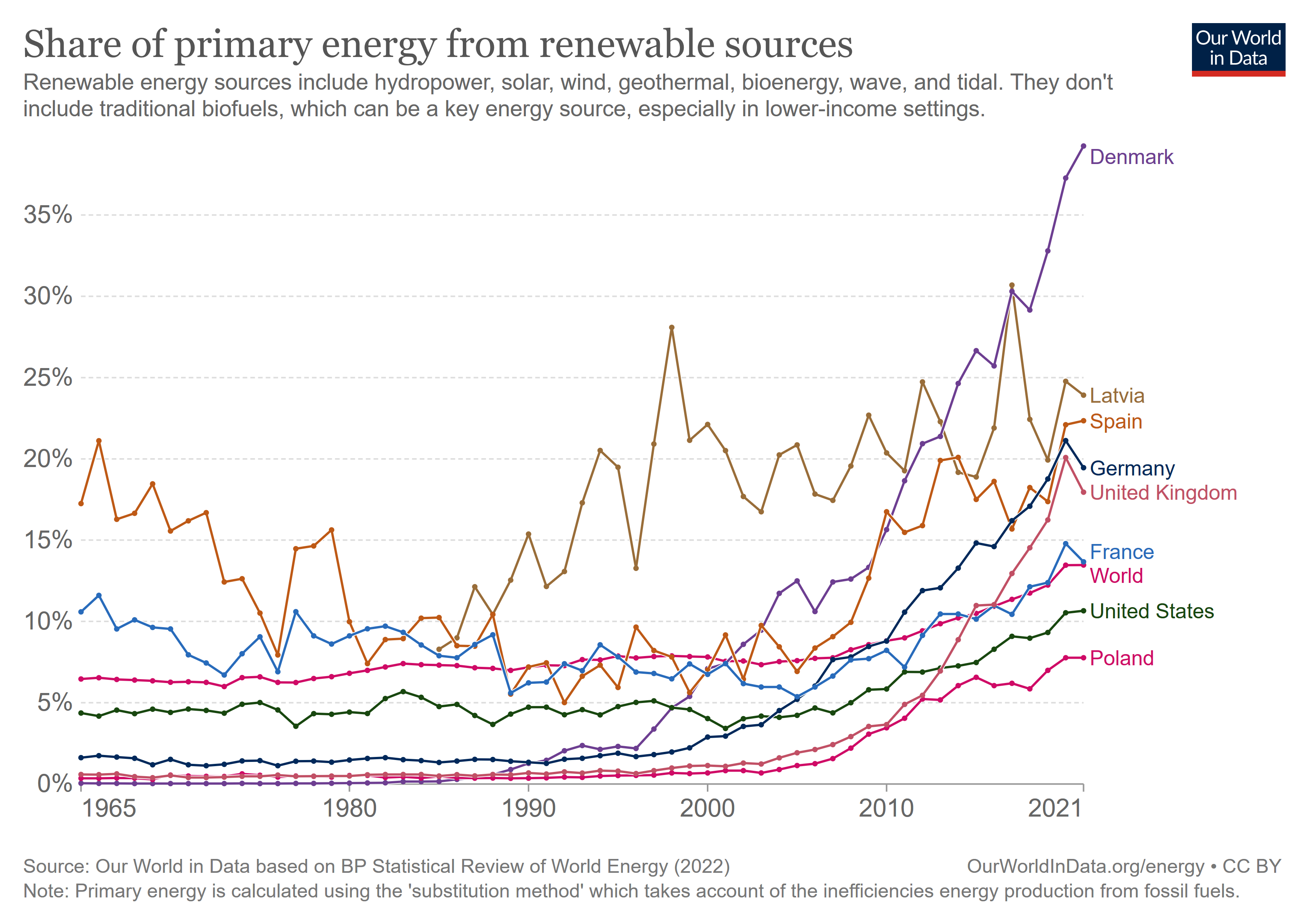Vladimir Putin at a meeting with the leaders of advanced engineering schools and their industrial partners said :
“Even when hydrocarbons are real, and not like today – “Wishlist” from someone in the West – leave, we will retain our leadership positions. We have all the possibilities for this, it’s absolutely perfect.”
"Vesti" reported this in an article under the heading "Putin: the departure of hydrocarbons is the" Wishlist "of the West."

The "Wishlist of the West", that is, the replacement of hydrocarbons with renewable energy sources, in reality looks like this: in 2000, renewable sources in the global energy balance accounted for 7.82%, in 2021 – 13.47%. In some countries, the growth is even more impressive: in the UK from 1.13% to 17.95%, in Germany from 2.89% to 19.45%, in Spain from 7.01% to 22.34%, in Denmark from 7 .1% to 39.25%.

According to the European Electricity Association (Eurelectric), in 2000, 392 g of carbon dioxide was emitted into the atmosphere per 1 kWh of energy produced in the EU, and 241 g in 2021. Against this background, Eurelectric claims that by 2030 the level in 77 years, and by 2035-2040 zero level, that is, a complete rejection of hydrocarbon energy.
When Putin spoke about leadership positions in the situation of reducing millet for hydrocarbons, he answered one of the participants in the meeting, who spoke about the production of "clean" hydrogen. There are such technologies, but Russia can hardly be considered a leader here. In August 2021, experts interviewed by RIA Novosti named the UAE, Saudi Arabia, Australia and Japan as potential leaders in this area, investing heavily in hydrogen energy (Japan – about $ 1 billion a year), and noted that Russia would be difficult with them compete.
In August 2022, Germany and Canada signed an agreement on the joint establishment of the production of "green" hydrogen in the Canadian province of Newfoundland and Labrador, which will be exported to Germany from 2025.


